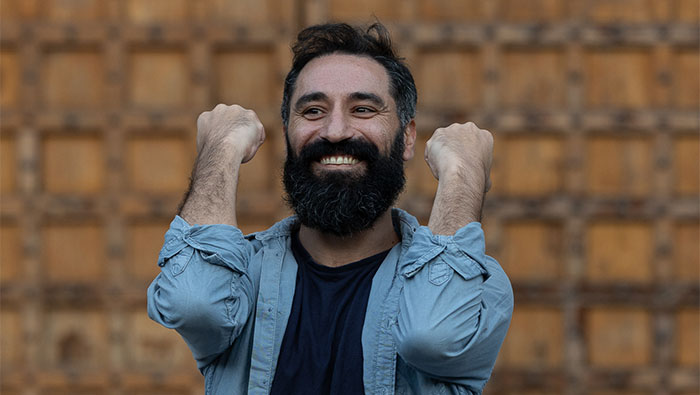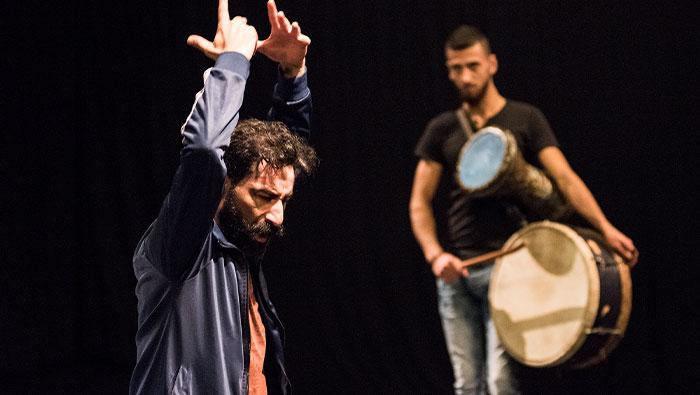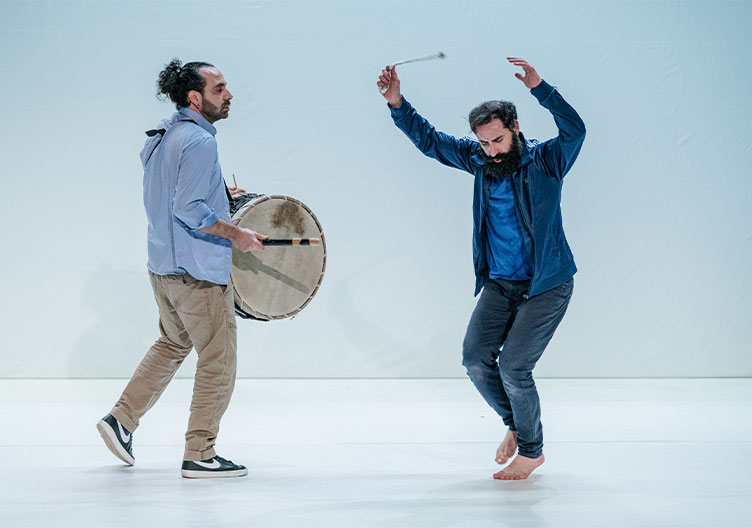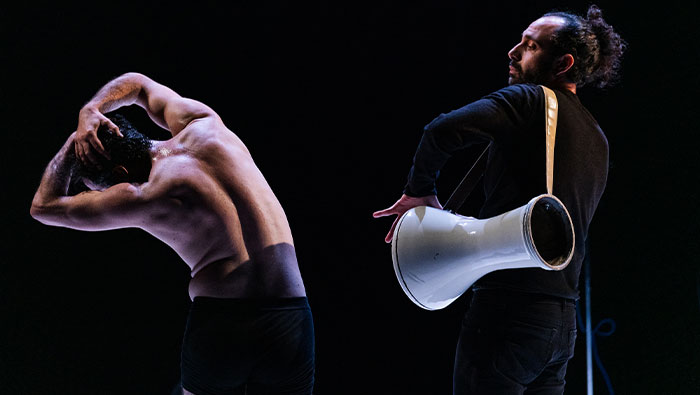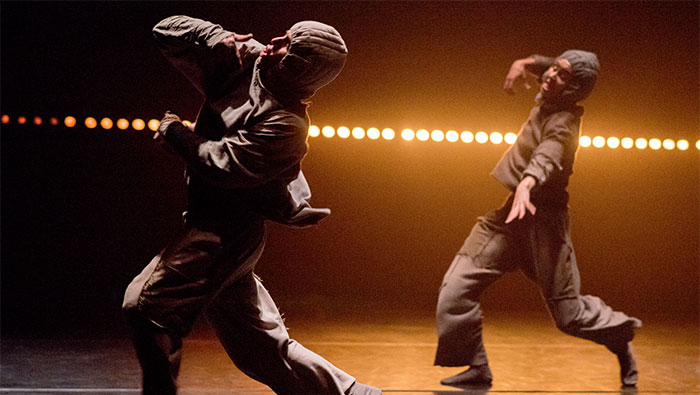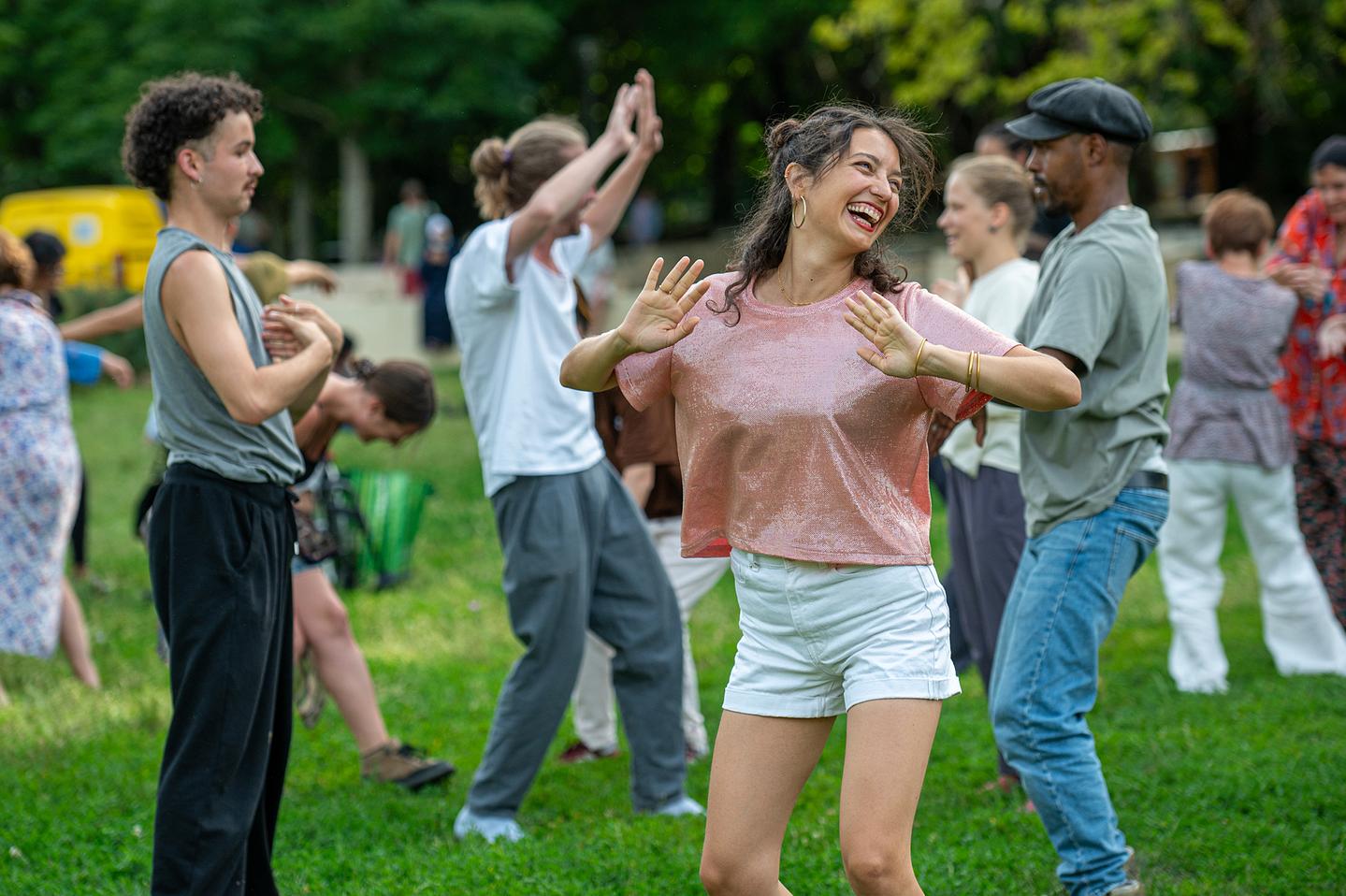The practice of theatre, contemporary dance and dabkeh, a traditional Lebanese dance form, led Bassam Abou Diab onto the paths of art. Invited for the first time to the Festival de Marseille, he presents a double programme focusing on a common question: how can the suffering of war and violence affect our perception of our body, our movements and our reactions? What are our mechanisms of defence and self-protection? Without pathos or cynicism, but not without humour and sarcasm, his two pieces combine the art of dance and music with the idea of a possible "resurrection." It’s as if their generic subtitle could be life is beautiful when our bodies transcend reality. With each beat of Ali Hout's drum, the dancer's body falls and rolls onto his stomach before being reborn: thus begins Under the Flesh, in response to the wars that have torn Lebanon apart. Returning to the gestures of bodies at war – survival, oppression, flight, avoidance, nausea – and experiencing war through movement are essential to him. Denying pain and fear and listening to his inner music which "moves under the flesh, makes you fall, roll, hide your face on the ground and then, saves you when you get up again” become artistic acts in this masterful dance piece.
Les représentations à Marseille reçoivent le soutien de l’Institut français du Liban.




